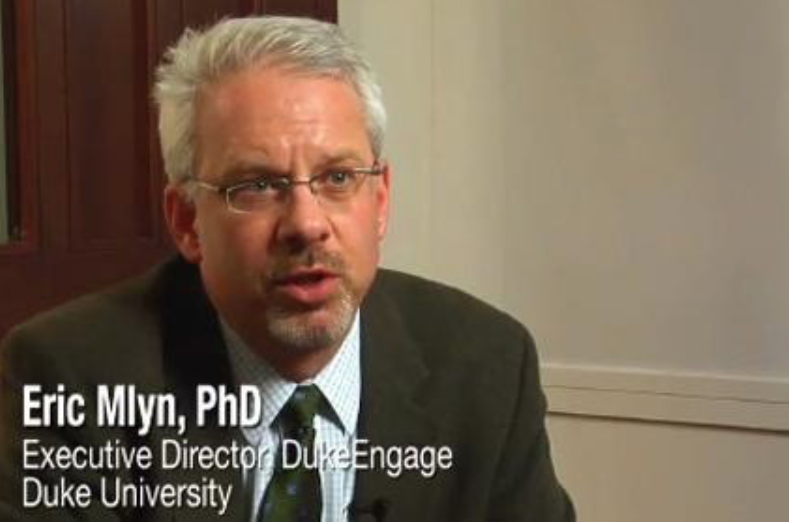
Read the article below in its entirety and see a related video, including an interview with DukeEngage Executive Director Eric Mlyn (featured above), here.
How do students learn the skills necessary to work with those who are different from them? How do they come to understand the global ramifications of local actions? How does higher education effectively train this generation for the global workforce?
The answers to these questions can be found through international volunteer service, which is increasingly seen at a broad range of institutions of higher education in a multitude of forms.
“Most colleges and universities are engaging in something called internationalization of curricula, and the idea is that many universities realize their place in globalization and that it’s not just partnering with other universities and colleges around the world, or accepting international students to come to our campuses, but really embracing the idea that we are creating global citizens through our educational process,” says Amanda Moore McBride, PhD, associate professor and research director at the Center for Social Development (CSD) at the Brown School at Washington University in St. Louis.
“While it is not new to higher education, international service pedagogy is at the threshold of a new era,” she says. “We have both the opportunity and responsibility in higher education to support and critically assess the international service performed by our students.”
McBride also directs the Gephardt Institute for Public Service at WUSTL.
International service in higher education takes many different forms, from internships and alternative spring breaks to study-abroad programs and credit-bearing international service-learning programs.
“I think students benefit from doing civic engagement work, whether it’s domestic or international, because primarily what these experiences do is take students out of their comfort zone,” says Eric Mlyn, PhD, executive director of DukeEngage, an international service program at Duke University.
“Whether they’re working in Durham, North Carolina, or in Haiti, students confront people who are different than themselves, they confront obstacles that they need to somehow deal with and overcome,” Mlyn says. “I think we are creating young leaders, we’re creating global citizens, and we’re creating a generation that will be deeply committed to civic engagement work, whether they are investment bankers or working for Teach for America.”
